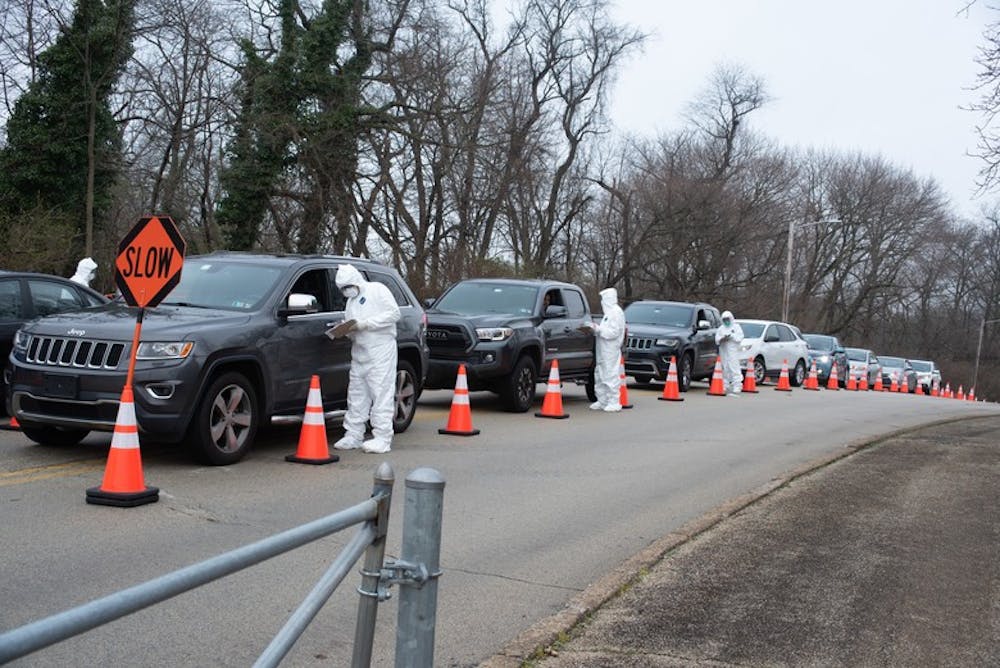During these unprecedented times, many people want to help the world get through the pandemic. Recently, I realized that in addition to social distancing, I can do something else — volunteer for vaccine human challenge trials. Challenge trials will speed up vaccine development and save lives.
Look at a broad overview of the COVID-19 vaccine development, then see how ethics plays a role. Many experts estimate that a vaccine could take 12–18 months to fully develop. Even now, some vaccine candidates are entering human trials, where volunteers either receive the vaccine candidate or a placebo. The participants go on to live their lives, possibly getting exposed to the virus. After months of monitoring, the scientists evaluate the effectiveness of the vaccine candidate. Given the dire nature of the pandemic, it is imperative to speed up COVID-19 vaccine development in a way that is scientifically and ethically sound. Human challenge trials are one way of doing this.
In challenge trials, young and healthy adults (aged 18–40) receive either a vaccine candidate or a placebo. Instead of releasing the volunteers back to their lives and waiting months for results, the volunteers are intentionally exposed to the virus. Scientists can more quickly see if the vaccine candidate is effective or not. While this method will likely speed up vaccine development, people have questioned whether this is ethical. I hold that challenge trials are not only morally permissible, but they may be morally required given the circumstances.
There are two primary moral components to this question. First, there are moral questions that come from putting the volunteers in this position. Second, we must consider the effects this will have on the overall world.
Start with the first worry: is it morally permissible to have these young adults in this potentially dangerous situation? I think that it is. Scientists would not be “putting” or coercing people such as myself into challenge trials. Many young people are willing to take the risk for the sake of vaccine development. In fact, one group that advocates for challenge trials has already seen about eight thousand willing volunteers.
We often hear that we are fighting a war with an invisible enemy. The volunteers would be like soldiers. By taking challenge trials, they are fighting a war where serious harm and death are not likely, but they are unfortunately possibilities. Challenge trial volunteers take the risks anyway for the sake of their communities and for a better world. For these reasons, we should not worry about the morality of the process.
To ensure that COVID-19 challenge trials are moral, we must still consider the second question regarding the effects on the overall world. We can do this by considering the worlds that come from the two scenarios: what would happen if scientists (A) did not employ challenge trials, and (B) did employ challenge trials.
Start with World A. In this case, we can still expect a vaccine to develop, but months slower than in World B. While no estimate is perfect, the advocacy group 1daysooner estimates that we can save 1.6 million lives by developing a vaccine three months earlier. Moreover, if people are still in quarantine during this time, other unintended effects such as child abuse, suicide, and mental health problems will be exacerbated. The financially unstable will become more so. Affluent countries like the United States might have limited, temporary fixes to these problems. But a poor country that cannot afford welfare for its citizens cannot do much to alleviate suffering and death. In sum, the longer the vaccine takes to arrive, the harder it becomes on the world.

Now look at World B. We can expect the vaccine to arrive earlier in this world, eliminating months of death and suffering experienced by those in World A. The tradeoff is that challenge trial volunteers who received a placebo or an ineffective vaccine candidate will certainly be subject to the disease. They might develop severe symptoms, and possibly die from the challenge trials. This would undoubtedly be a tragedy, a big loss of World B.
While much is still unknown about the virus, it is worth mentioning that serious harm or death is possible, but highly unlikely within the young, healthy demographic. Based on recent antibody tests, New York Governor Anthony Cuomo has suggested that the actual COVID-19 mortality rate may be closer to 0.5 percent. The conditional mortality rate for young adults without pre-existing conditions would be significantly lower — maybe lower than the probability of death from a kidney donation, which is at 0.03 percent.
Comparing the two worlds, we see that World B with challenge trials is significantly better than World A without them. The deaths and suffering in World A are much worse than in World B. If the moral choice is correlated to a better world, then it may be our moral duty to try to bring about World B. Thus, the morality of the “effects” dimension also supports challenge trials.
Scientists at Oxford and other institutes are starting human trials for their vaccine candidates. While certain bureaucratic systems may prevent them from employing human challenge trials, scientists should not be held back by these moral concerns. In fact, scientists can argue that moral concerns compel them to perform challenge trials with willing volunteers. Scientists that already started testing their vaccine candidates would still benefit from challenge trials. They should not worry about lost time, or else they would be falling into the sunk cost fallacy.

Professor Peter Singer recently wrote an opinion piece advocating for human challenge trials. If scientists need moral advice from renowned ethicists like Singer or want to know what volunteers such as myself think, then we are here to provide our insights. If chosen, I will readily get the vaccine candidate or placebo and expose myself to the virus, knowing the world will become a better place because of this.
Isaac Martinez is a senior in the philosophy department. He can be reached at isaacm@princeton.edu.








